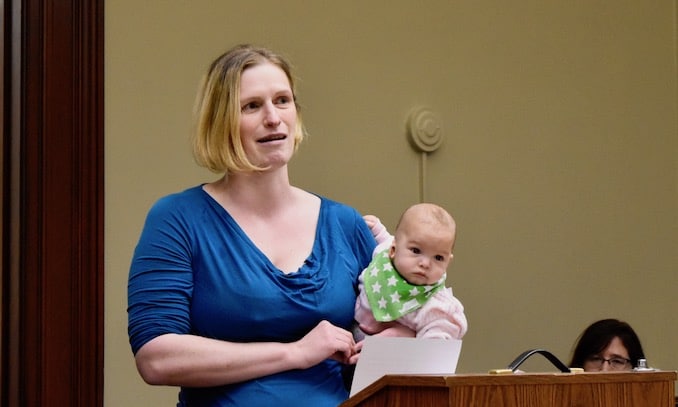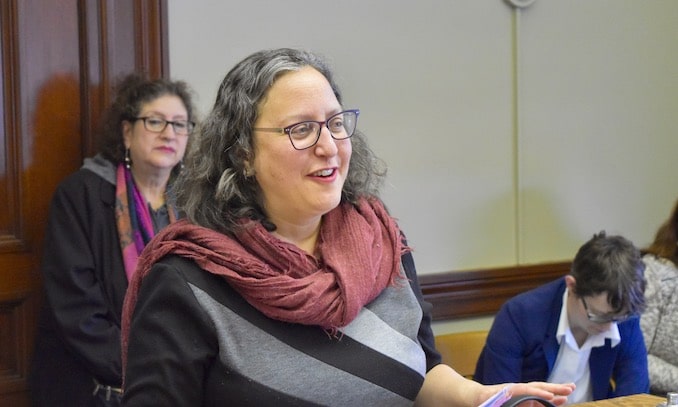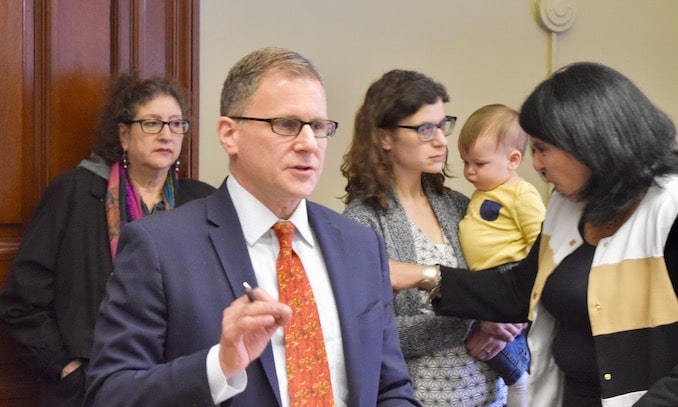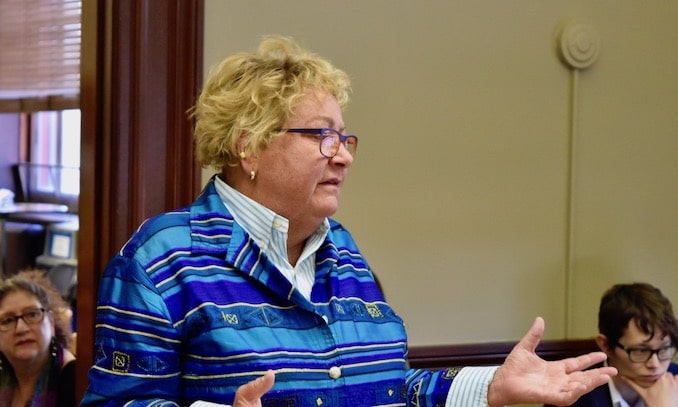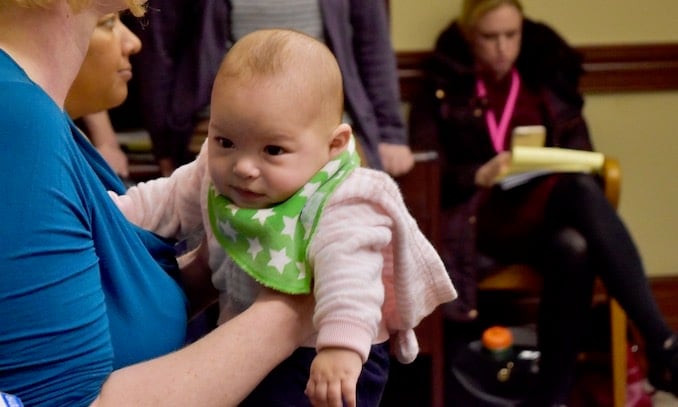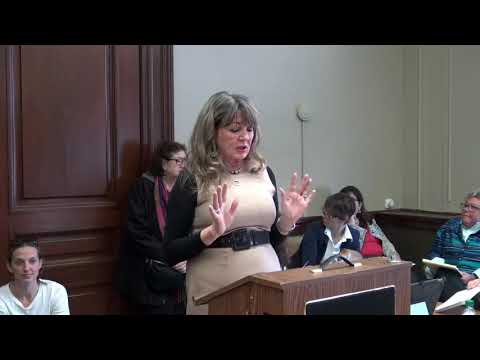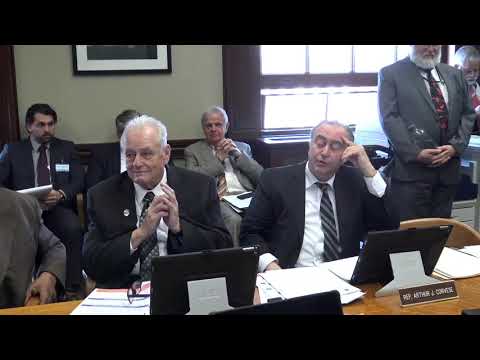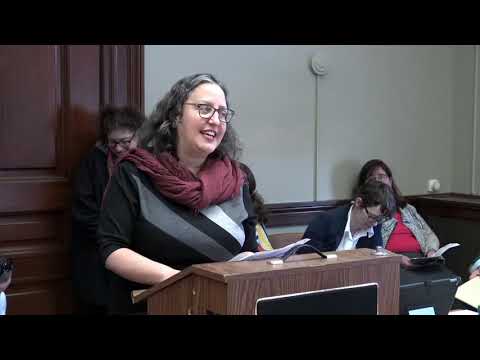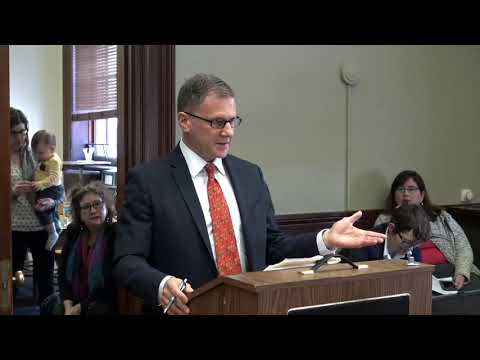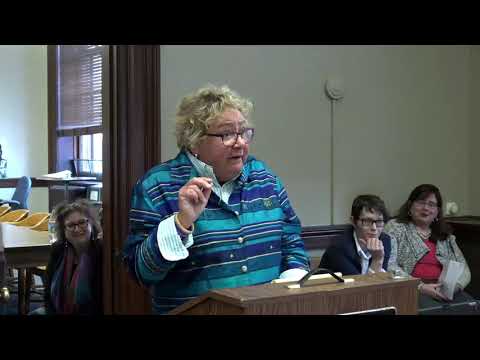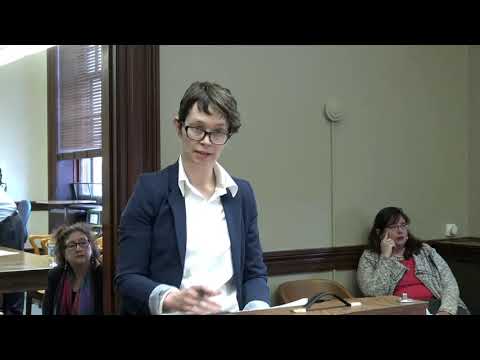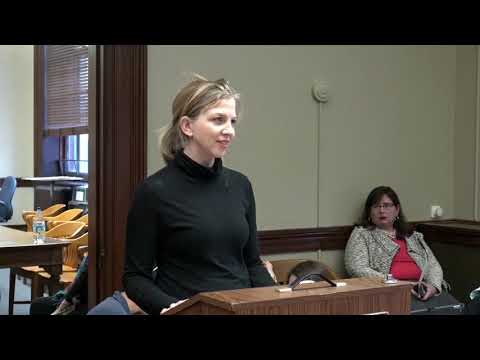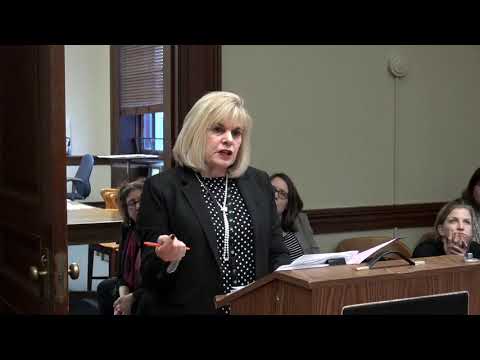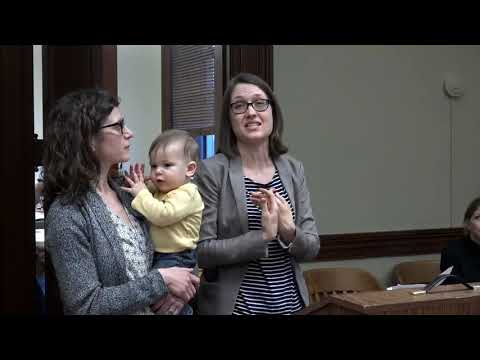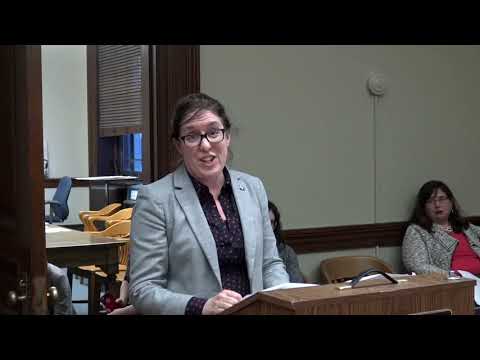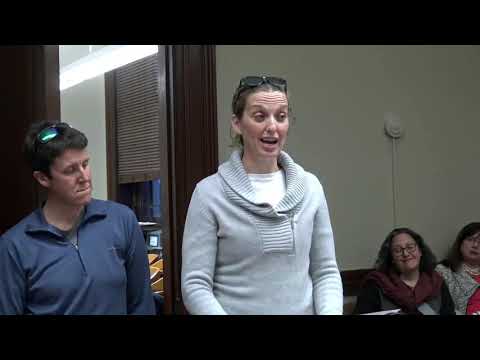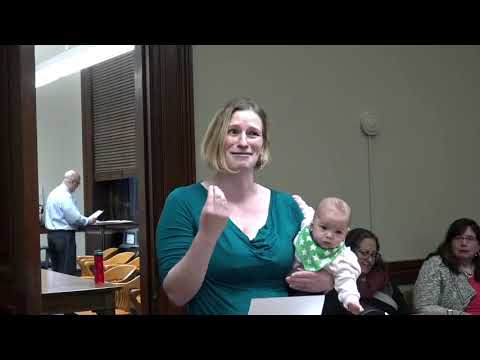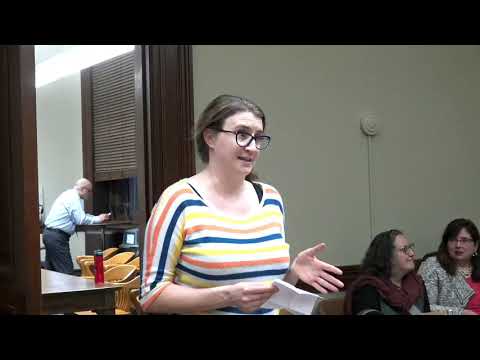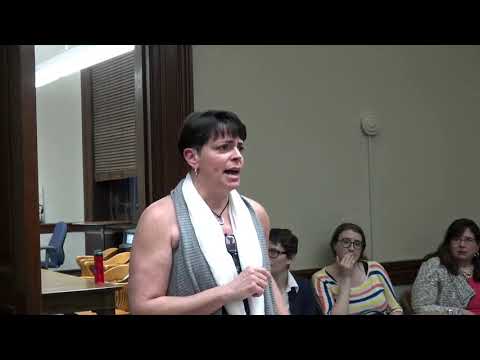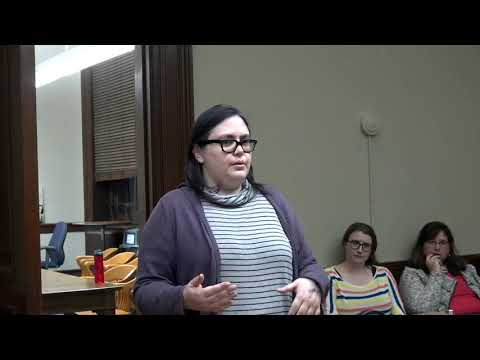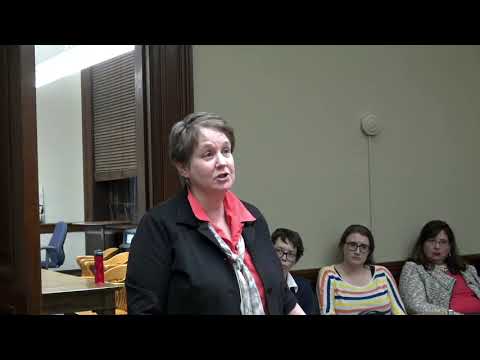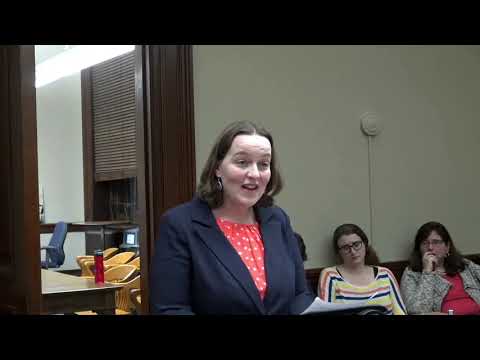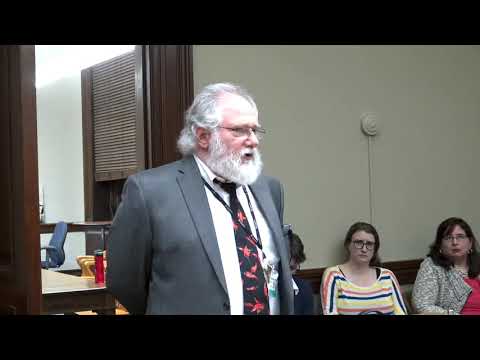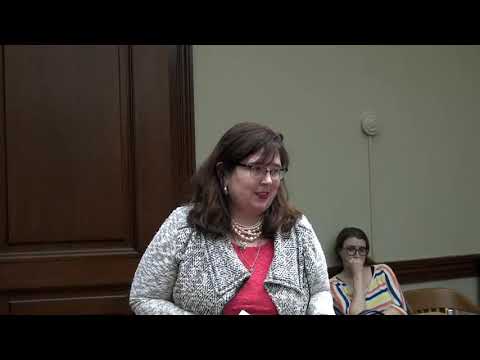Rhode Island’s parentage law hurts some families, the Uniform Parentage Act will remedy that
Rhode Island’s parentage laws are woefully out of date. The statutes were enacted in 1979, and have not been revised or updated much since that time. Some parts of Rhode Island’s parentage laws are archaic and perhaps unconstitutional, since the United States Supreme Court held that laws barring marriage between two people of the same sex are unconstitutional in Obergefell
March 21, 2019, 11:05 am
By Steve Ahlquist
Rhode Island’s parentage laws are woefully out of date. The statutes were enacted in 1979, and have not been revised or updated much since that time. Some parts of Rhode Island’s parentage laws are archaic and perhaps unconstitutional, since the United States Supreme Court held that laws barring marriage between two people of the same sex are unconstitutional in Obergefell v Hodges (2015).
Last night over a dozen people, mostly women with young children and same sex partners, were at the House Judiciary Committee hearing to advocate for two bills that would help clarify the law on parentage and same sex couples. Both bills were introduced by Representative Carol Hagan McEntee (Democrat, District 33, South Kingstown, Narragansett).
The first bill, H5706, would simplify the process for same sex couples to adopt their own children. The current process takes months to complete, requires parents to undergo a rigorous screening process, place advertisements in the newspaper notifying anonymous sperm donors that the court will be suspending their paternal rights, includes finger printing and home visits, and invasive questionnaires.
Opposite sex couples do not have to undergo this process, even if unmarried.
The next bill, the Uniform Parentage Act, H5707, is a more comprehensive overhaul of Rhode Island’s parentage laws. This law would bring Rhode Island up to date with current scientific advances and cultural norms, and provides procedures establishing parentage, genetic testing, surrogacy agreements and assisted reproduction.
In the first video below, Representative McEntee introduces the bills.
“This is in the best interest of the children to have two parents,” said Representative McEntee to conservative Representative Arthur Corvese (Democrat, District 55, North Providence).
“You don’t have to convince me,” said Corvese. “I’ve already committed to both bills if they hit this committee…”
“Whoa!” said Representative McEntee.
“As everyone knows I am politically and philosophically consistent and I don’t break my word,” said Corvese.
Representative Rebecca Kislak (Democrat, District 4, Providence) testified in favor of the two bills because “they’re great bills and the would have helped me and my partner Joanna as we were forming our family.
“We went through DCYF twice. We had two home studies, one for each of our children, to determine whether we were appropriate parents for our children, when we were always the only intended parents. Our children each had only one legal parent for six or seven months until we could complete the home study and the adoption process… I worried if something were to happen to the non-birth mom in those six months. That was an anxiety we didn’t really need. There was no option for us to be on the birth certificate from the start…”
“To the LGBT community in particular, these bills are important for protecting our children who come into our families in so many different ways,” said Ben Klein, an attorney with GLAD (GLBTQ Legal Advocates & Defenders). “Families today are formed in so many different ways, including with assisted reproductive technology, surrogacy, or with people who are functionally serving in the role of parent…”
“Over the past 30 years families have been created, across this country and across this world, through miracles of medical technology,” said attorney Lise Iwon. “Without laws, we’ve had to jury rig and figure out ways to get through the system and it’s been a difficult time…”
Iwon’s testimony is very much worth watching in full.
“Legally, I can’t make decisions for a baby I have no legal link to. For all intents and purposes, after the birth of my son, I became an invisible entity. And this continued, for the first eight months of his life, despite the fact that I was an equal part in conceiving and caring for him. This never happens to unmarried same-gender couples…”
After purchasing sperm from a company that keeps the donor’s name anonymous, “Because of our outdated Rhode Island laws we were required, when we went to family court, to place an advertisement seeking the father of our child. And if it’s not clear already, this child doesn’t have a father. The child has two mothers and a donor… We had to pay for this [advertisement.]”
After the ad had run its course, the family arrives in family court, where the officer of the court steps outside and yells into the halls, “is anyone responding to the ad?”
“We waited for two long, extremely degrading minutes. It might as well been forever. We didn’t know who saw the ad. We didn’t know who would walk through the door. It was posted publicly, right? that’s the point. Literally anyone could have seen that, walked in, claimed his parental rights to our child…”
Attorney Sharon Santilli from the Office of Child Support Services explained the shortcomings of our present laws. “The Department of Human Services certainly supports this bill and we urge passage,” said Santilli.
“Lawyers we consulted recommended that I go through the second parent adoption process, which as it turns out… is quite extensive, costly and invasive in Rhode Island.”
Moira Hinderer had a difficult child birthing experience, requiring hospitalization and her premature daughter spending months in the NICU. During this time, her partner had no legal right to make important medical decisions for her daughter, since she was not yet a legal parent.
“I spent an additional five hours in surgery, during which Hilary was June’s only conscious and functional parent, despite the fact that Hilary acted like a parent, that we both believed that she was June’s parent, legally she was a stranger to June at that time. She could not make any medical decisions for our two pound, three ounce baby, who required incubation and other medical procedures… these were all done at the discretion of the hospital…”
“Though we had been married for almost three years [when our child] was born, we felt completely unprotected from the real possibility that we could be traveling, or even here in the State of Rhode Island, and there could be a situation where our child could be taken away from us…”
“We haven’t gone through the second parent adoption process yet and it’s not because we are uneducated… it’s invasive and overwhelming and obnoxious so we haven’t done it,” said Denise Crooks. “That means that our kids are at risk. If I die, and one of my parents decided that they were next of kin, they could put forward a claim over my wife…”
“I have a seven month year old, and we have not gone through that process, much like the person who spoke before, because it’s expensive, we know it’s really invasive now.. so we’ve been avoiding doing it…”
“I was the primary caregiver for my twins even though [my partner] carried them and we nearly lost her when they were born, which was before I was able to adopt them. I would have been in deep trouble were it not for Lise [Iwon] and the paperwork she drew up prior to and for the care and consideration of everyone at Women and Infants Hospital…”
“Once everyone hears that the parentage laws have not been updated since 1979, and once they hear that this is the work of the Uniform Law Commission, which is very well respected, everyone I’ve talked to has said absolutely, this is a great set of bills.”
“We can’t have parentage and adoption laws from the 70s in 2019. Things have just changed too much and we need to recognize that in law,” said Wendy Becker.
“Rhode Island law has not kept pace with the rich diversity of families in Rhode Island and these many different paths to parenthood,” said Kate Weldon LeBlanc, Executive Director of RESOLVE New England (RNE). RNE has been a “leading voice and progressive driving force connecting the New England community on the many paths to parenthood.”
“The lack of clarity early on is very painful for people,” said child psychiatrist Dr David Savitzky. “Especially at the very beginning, when parents are establishing their relationship to their children. Knowing with certainty, knowing that I’m there for you, that I’m your mother, I’m your father, I’m not going anywhere. And the child feels that it’s the case. They feel it in their bones…”
Darlene Allen, CEO and Executive Director of Adoption Rhode Island pointed out that time spent by Rhode Island Department of Children, Youth, and Families (DCYF) verifying routine parentage of same-sex couples might be better spent protecting the interests of at risk children.
Uprise RI is entirely supported by donations and advertising. Every little bit helps:
Become a Patron!



